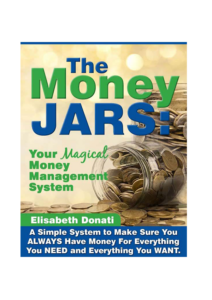We’ve all heard, and probably said, that practice makes perfect. while most of us know there’s no such thing as perfect, there is, however, learning to do the best you can with what you have to work with and what you know at any particular time.
If you’re like most parents, you know deep down in the recesses of your mind, that you have to at least attempt to teach your kids how to use money wisely. Often when the topic of kids and money or teens and money comes up in conversation, many parents admit they just don’t don’t what to do to teach their children how to manage money.
The question is, How to you teach your kids how to handle money and not have it cost you a futune or lead to constant fighting over money?
This is where the confusion often kicks in…you only know what you’ve experienced in the realm of financial knowledge and that may not be the best place to start. The most important thing is simply start somewhere.
At some point in their children’s lives, most parents usually consider giving their children an allowance of one type or another. The challenge lies in determining which type of allowance to give.
There’s the “giving an allowance just because” method, the “giving an allowance and making them do chores method:, there’s the “giving them an allowance for grades method” and there’s the free for all method where you keep trying different things and eventually throw up your hands because nothing seems to be working.
At this point most parents opt for the ‘pray it all works out somehow’ method. Sometimes it does; sometimes it doesn’t.
What if there was a way to truly empower your children with the tools and information they needed to move out and stay out, except for visits, of course?
What if giving your child an allowance could actually save you money instead of costing you extra money?
Well, there is such a method, but before you start using this powerful system, let’s look at why it works.
Experience is the best teacher:
Most of us have discovered over the years that we learn best when we’ve experienced something first hand. It’s a nice idea to learn from other people’s mistakes and be motivated by other people’s triumphs but the fact remains…if we do it ourselves, we get the visceral lesson and there’s no better or longer lasting lesson than that!
Letting your children learn about money is exactly the same thing. You can’t TEACH them how to spend money wisely but you sure can put them in situations where they experience how to do it wisely (or not, as the case my be:-).
Imagine that your child wants to be a professional basketball player but you never giving him a basketball to dribble or throw, never giving him time on the court to practice, oh yeah, never give him a coach, and, oh yeah, never teaching him the rules to the game. This is what money is like for most young adults. They are rarely given a chance to learn how to use it wisely. Most of them learn how to spend it really well. Spending it, however, doesn’t lead to financial success or freedom!
Learning to do more than simply spend money is why providing your child with an allowance is so critical. Practice is how lessons are learned and habits are formed. There is a saying that says, “Repetition is the mother of skill.” If this is true, then only through the actual practice of using money will a child truly learn to use this resource wisely. That’s why allowances are important. No practice, no lessons. No lessons, no skill. No skill, well?, we know what happens when there’s no skill. You have a society that’s deep in debt with no knowledge of how it got there or how to get out.
Practice, Practice, Practice:
It’s up to parents to provide the financial practice our kids need to go it on their own successfully. And it’s that what you really want? There’s no prouder moment than when you realize your child is a full-grown adult who is fully responsible for himself and his family.
With the right type of allowance (we’ll get to that in a bit), your child will experience the three important aspects of financial practice, all with their inherent lessons woven in.
Remember that human beings are typically motivated in two ways:
1. We move away from pain (the most prevalent).
2. We move toward pleasure.
Let’s look at how an allowance can prepare your kids for real life through these two constructs: pain and pleasure.
Practice learning from poor choices.
There’s nothing like making a painful mistake to teach you a lesson. The most valuable lessons we ever learn come from making decisions that didn’t turn out in our favor.
Once they’ve make a financial choice that was somehow painful and unacceptable to them, they generally steer clear of that choice in the future.
Practice learning from making wise choices.
Most of our most vivid memories are attached to moments in our life where we did good, conquered an obstacle, reached a goal and the like. Wise financial choices have a powerful way of making lasting impressions on us.
Think back right now on your past to a time when you made a wise decision or choice with money. (If you can’t remember one, this is all the more reason to get your kids on a powerful allowance system as soon as possible.) It’s probably something you have repeated several times since then.
Examples are buying, remodeling and selling a piece of property for a profit, investing in a great stock that went up in value and you sold it for a nice profit, starting a business with a great idea that eventually became the way you made your living and became financially independent.
All of these examples are why people end up in real estate, business or the stock market as their primary method of investing. Success leads to pleasure, pleasure leads to a propensity toward becoming an expert in a certain area and expert status leads one, directly or indirectly, into different careers and lifestyles.
Practice learning as a matter of repetition.
It’s hard to do something wrong over and over and over again. For most people, once you’ve done something wrong, especially if you’ve done it wrong more than once, it’s time either give up, try harder or get help and coaching.
When children are put in charge of their own financial affairs at an early enough age, let’s say 6-8 years old, they have more than a decade to figure out what works and what doesn’t work. This is why it’s so important to start providing opportunities for practice with money as soon as the child is ready.
Please note that some children never appear ready. They never ask for money, never ask for stuff, and don’t want to be responsible. At some point this type of child must be put in charge of their finances or they may never move out! And that’s not usually in the generally accepted parent-child contract!
So how do you give your child an allowance that works without it costing your a bloody fortune? Simple, you take the money you’re already spending ON your child raising them, and you run a lot of that money THROUGH them instead.
We’re not talking about running rent, basic food, insurance and stuff like that; we’re talking clothes, hair bows, sports equipment, school supplies, books, entertainment, and the other stuff of life that they could easily be put in charge of.
The intention of this type of allowance is that by the time they are 18 and move away from home, they are 100% responsible for everything they need to survive on their own, and hopefully, a few of the things they want to make life enjoyable.
In addition to running some of the money your use to pay for their basic needs through them, along this path you’re going to encourage your children to start making their OWN money as well.
This is not as challenging as you may think at first. Children are little entrepreneurs in the making; they are idea magnets. It’s their job. They see opportunities everyone IF they have a parent, guardian or mentor to open their eyes to the opportunities in the first place.
The Ultimate Allowance: How to Get Started
It’s pretty simple to start this type of allowance. Simply get out a piece of paper and your favorite pen, sit down with your child and start looking at all of the expenses you are now shelling out for directly.
Depending on your child’s age and level of maturity, decide together what items you will start putting them in charge of purchasing. Decide together how often you’ll provide this allowance (weekly, biweekly, monthly) and talk about what might happen in terms of making poor choices (consequences are better if they know them before hand), coming up short or even losing money.
Talk about what could happen if they make great choices. Knowing they get to celebrate with a movie or ice cream, gold stars on a nice clean poster board, a small bonus for cutting costs (make it as life like as you can) all can help motivate them to make better choices.
Ask Don’t Tell:
Please do not ‘tell’ your child that you are going to start giving them an allowance and ‘this is the way it works.’ Consider this a financial rite of passage so to speak and enroll them in the excitement of being able to fend for themselves, be in charge of their own destiny, become the CEO of their own lives!
Just like adults, we despise being told what to do. We generally feel really good when we’re honestly enrolled into something exciting, especially if there’s something in it for us. You know your child best—their buttons, their passions, what move them. Spend time thinking about how best to enroll your child in the idea of being self-sufficient and in control. You may be surprised at how willing they are to take on this next exciting challenge.
Nothing is more powerful that being fully responsible for your own life. Using the right allowance strategy will provide the essential, and critical, financial practice your children need, before they move out on their own, to do, be, have and create anything they want in their lives.
What more could a proud parent ask for? Sit back and feel the glow knowing you’re doing everything you can to prepare your child for success, whatever that ends up meaning to them. Feels great, doesn’t it?
Elisabeth Donati is the owner of Creative Wealth Intl., LLC and creator of Camp Millionaire, a unique financial intelligence program for youth.
Elisabeth is known as The Financial Literacy Lady
Elisabeth is an expert in teaching the basic financial principles everyone needs in a way that is engaging, empowering and fun.
She is the author of The Ultimate Allowance and the weekly ezine full of thought provoking insight and information on all things
financial literacy related…
Financial Wisdom with a TWI$T.




0 Comments